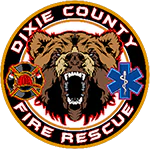Disasters are upsetting experiences for everyone involved. No matter how well you have prepared, you might feel an emotional toll after going through a disaster.


Disaster preparedness involves the entire family. Parents should be informed of response issues and share the information with their children. It is important to talk with children about safety and to include them in planning for all types of disasters.
Children feel safer when they are part of the "family team." Parents should listen to their children's suggestions. Often adults will take precautions at their children's insistence that they would not normally take. All families should have a Family Disaster Plan that should include an Emergency Supply Kit. They should know what is in the supply kit, why those items are necessary, and how to use them.
Children should also be made aware of emergency phone numbers and know when to call for help. They should know all important family information, such as the family name, address, phone number, and where to meet if separated by the emergency.
If a disaster does strike, parents must help children deal with the frightening experience in a way that will prevent the development of a permanent sense of loss. Parents should be aware that after a disaster, children are most afraid that:
Because of the interruption or abandonment of daily routine that a disaster can cause, a child may become confused and anxious. They will look to their parents for help and clues on how to act. If an adult reacts with alarm, a child may become more scared, seeing the adult's fear as proof that the danger is real. Feelings of fear are healthy and natural for adults and children.
But adults need to be able to keep control and concentrate on their children's emotional needs. It will not harm a child to know that their parents are also afraid. As a matter of fact, it is good to put those feelings into words. This sharing will encourage the child to talk about their feelings and fears. Being told it is normal and natural to be afraid is reassuring. Communication is most helpful in reducing a child's anxiety and, for that matter, the adult's anxiety.
Here is some advice to parents for helping their children cope immediately after a disaster:
As time passes, it is important for parents to be sensitive to changes in their child's behavior - especially subtle changes that may indicate distress. After Hurricane Andrew, one study found that 95% of students at one south Florida elementary school showed some signs of post-traumatic stress.
Children may become more fearful, complain of physical ailments such as head and stomach aches, become clingy, not wanting to leave their parents, lose bladder control, fear of strangers, or return to outgrown habits such as thumb sucking and bedwetting. Adolescents may become depressed and withdrawn and perform poorly in school; some may turn to alcohol or drugs or become rebellious.
Parents can best help children cope by understanding what causes their anxieties and fears. Children should be reassured with firmness and love. Again, communication is a must. Encourage children to share their feelings and listen to them.
Children will realize that life will eventually return to normal. If a child seems unable to resolve feelings of anger and pain, parents should seek help from a mental health specialist. This is not a sign of failure. Mental health professionals are specially trained to help people in distress. They can help parents cope with and understand the reaction of their children. It is a way to avoid severe problems.
